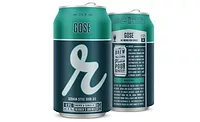eCommerce benefits from fundamental shift within consumers
Awareness plays key role in consumers use of digital shopping

Image courtesy of Getty Images
In Disney’s animated hit “Frozen 2,” Elsa sings in the song “Into the Unknown” that “Every day’s a little harder/As I feel my power grow/ Don’t you know there’s a part of me/ That longs to go/ Into the unknown?” Although the princess was referring to her need to know the source of her powers, her eagerness to explore something new and strange is an all-too-human trait. More and more shoppers today also are stepping into the unknown of eCommerce as awareness and accessibility are making it easier to navigate.
“There have been fundamental shifts in consumer behavior over the past few years as the purchasing of everything has moved more into eCommerce,” says Liz Paquette, head of consumer insights at Drizly. “The pandemic accelerated the shift online and this category has experienced dramatic growth these last few years in particular.
“We saw more than a doubling of penetration in beverage alcohol eCommerce and as the awareness and availability of beverage alcohol eCommerce for consumers continues to grow ― we expect this to continue to scale,” she continues. “eCommerce offers retailers, brands, distributors opportunities to reach consumers in increasingly new and efficient ways, as well as greater convenience, selection for consumers.”
Paquette adds that a recent report from Rabobank found that the online alcohol channel more than doubled in size from $2.6 billion in 2019 to more than $6 billion in 2021.
“Alcohol purchases are increasingly moving to eCommerce, with as much as 6% of alcohol sales globally expected to be purchased through digital channels by 2025, according to AppRhino,” Paquette says. “Consumer awareness continues to increase and more brands and retailers continue to invest. More options for consumers mean more momentum for adult beverage eCommerce.”
Chicago-based Mintel also details the acceleration of eCommerce in its 2023 report “Grocery Retailing: In-store and Online – US,” noting that more consumers are embracing omnichannel shopping for food and beverage items.

“The grocery landscape is still in the midst of an evolution after the pandemic accelerated eCommerce and omnichannel shopping routines,” stated Brittany Steiger, senior analyst for retail and eCommerce at Mintel, in the report. “Currently, savings are top of mind amid inflationary pressures and consumers are adapting by shifting toward more budget-conscious behaviors. In the longer term, consumers will be eager for a shopping experience that checks all the boxes on convenience, budget and quality as they increasingly expect a seamless shopping experience across channels.”
Although basically all consumers shop in-store for groceries, Mintel reports that “63% of consumers who shop online for groceries are doing so more often than they were a year ago, proving that the trend has staying power as online shopping evolves into a permanent choice rooted in convenience.”
Building out eCommerce’s future
As more consumers see the benefits of eCommerce for their shopping needs, experts highlight that brands understand the importance building out an infrastructure to support that growing demand.
“Brands have continued to invest in eCommerce in a number of ways whether through building out dedicated eCommerce teams, spending more deeply on eCommerce platforms, considering eCommerce rollouts as part of their go-to-market strategy, and building out their own solutions,” Drizly’s Paquette says. “In this category specifically, eCommerce has opened the hood to consumer shopping behavior, providing brands with the opportunity to more deeply understand how their products are moving in the marketplace and forecast new product innovation opportunities, as well as changing consumer behavior with their existing products.”
Paquette notes that eCommerce platforms allow brands to build out campaigns as well as gain insights to consumer data as to how these campaigns perform with shoppers.
“Many beverage alcohol brands are using eCommerce data to better understand their end consumer,” she says. “By accessing real-time data, brands can innovate, adapt and ultimately make better business decisions based on what they know is resonating with their consumer.”
In fact, more than 40% of Drizly consumers use the platform for purposes beyond purchase, including product research, Paquette explains.
“The brands that strongly consider eCommerce in their marketing and distribution strategies will be the ones that win longer term ― it will continue to be a bigger and bigger driver and indicator of consumer shopping behavior for this category,” she says.
Platforms like Drizly also are doing their part to build the future of the channel. As Paquette notes, Drizly’s goal when it started was “not to disrupt the three tier system, but rather to operate within it.” As such, Drizly works to respect regulations, while still delivering the best shopping experience and hopes to bring awareness to the channel.
“Drizly continues to invest in new and existing markets, and we currently operate in 38 states and one Canadian province, and over 2,000 cities in the U.S. and Canada,” Paquette says. “Operating in this category in a compliant manner requires careful consideration ― each state and market has its own laws and regulatory considerations to abide by, which can impact the end consumer’s shopping experience, as well as how retailers, brands, and distributors can go to market online. Beyond this, consumer awareness of the category still has room to grow ― 34% of consumers recently surveyed by Drizly were ‘not sure’ if their state allowed the purchase of beverage alcohol online.”
Given these consumers who are unsure about local online alcohol sales laws, and as consumers become more educated on the eCommerce channel, opportunities abound. Mintel expects growth for grocery eCommerce, but not at the same rate as during the pandemic.
“Grocery eCommerce will also continue growing, albeit at slower levels than the explosive growth observed earlier in the pandemic,” the report states. “Total U.S. online sales of groceries are estimated to hit $163.6 billion in 2023, growing at more modest rates to exceed $180 billion by 2027 as multichannel becomes the norm.”
Developed for growth
Although eCommerce is poised for growth, key players are taking the steps to ensure that their platforms are making the experience the best it can be for consumers.
“There are a number of technological advancements that will continue to shape, evolve, and even disrupt the eCommerce shopping experience as we know it today ― from AI and automation to mobile and social commerce,” Drizly’s Paquette says.
She notes that the platform has continued to innovate the experience, most recently with the new Drizly Gift Registry where shoppers can share a personalized registry of beer, wine and spirits.
“With just a click of a button, consumers can send their curated Drizly Gift Registry to friends and family, ensuring they’ll get exactly the gifts they want,” she says. “In tandem, shoppers can take the guesswork out of gifting to make sure they find the best gift for any recipient.”
The company also launched shipping options in 27 states and this summer debuted the Party Theme Generator 3000, where hosts can click a button to randomly “generate” a party theme and get drink recommendations to match the theme, as well as other tips to pump up the party.
“Party Theme Generator 3000 [is] designed to make consumers the best host ever with unique party theme inspiration, perfect drink pairings and other tips to ensure the most epic bash,” Paquette says.
Recognizing that in-store shopping is no longer a barrier in a post-pandemic era, Paquette notes that Drizly is building on what it had pioneered to deliver more that fulfills consumers’ needs and demands.
“Consumers are demanding more from an eCommerce shopping experience ― it needs to not only deliver a more convenient, better value shopping experience, but also deliver a more enjoyable and helpful shopping experience,” she says. “We continue to evolve our focus beyond just convenience to an occasion-based experience centered [on] the key moments that matter when searching for that perfect beverage.
“We’re leveraging technology to build the best, most enjoyable, most helpful shopping experience for beverages so that our customers can focus on what matters most to them ― savoring that perfect beverage, providing a moment of joy to others, spending more time doing the things they love with the people they love,” she concludes.
Looking for a reprint of this article?
From high-res PDFs to custom plaques, order your copy today!






